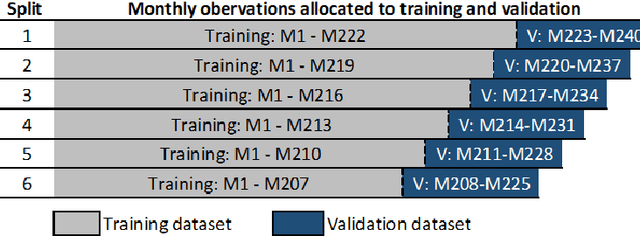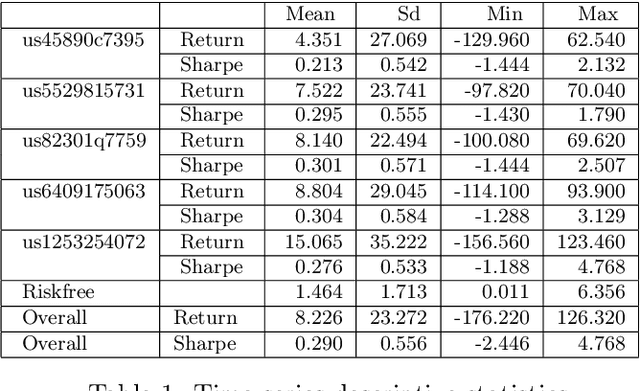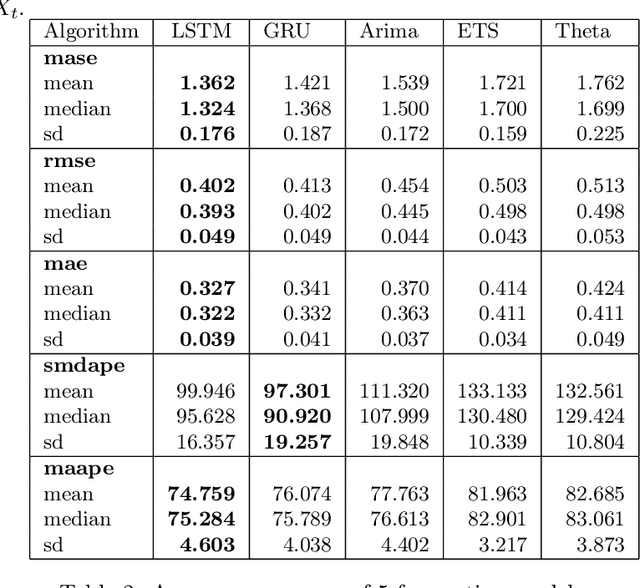Binh Dao
Predicting Performances of Mutual Funds using Deep Learning and Ensemble Techniques
Sep 18, 2022



Abstract:Predicting fund performance is beneficial to both investors and fund managers, and yet is a challenging task. In this paper, we have tested whether deep learning models can predict fund performance more accurately than traditional statistical techniques. Fund performance is typically evaluated by the Sharpe ratio, which represents the risk-adjusted performance to ensure meaningful comparability across funds. We calculated the annualised Sharpe ratios based on the monthly returns time series data for more than 600 open-end mutual funds investing in listed large-cap equities in the United States. We find that long short-term memory (LSTM) and gated recurrent units (GRUs) deep learning methods, both trained with modern Bayesian optimization, provide higher accuracy in forecasting funds' Sharpe ratios than traditional statistical ones. An ensemble method, which combines forecasts from LSTM and GRUs, achieves the best performance of all models. There is evidence to say that deep learning and ensembling offer promising solutions in addressing the challenge of fund performance forecasting.
 Add to Chrome
Add to Chrome Add to Firefox
Add to Firefox Add to Edge
Add to Edge